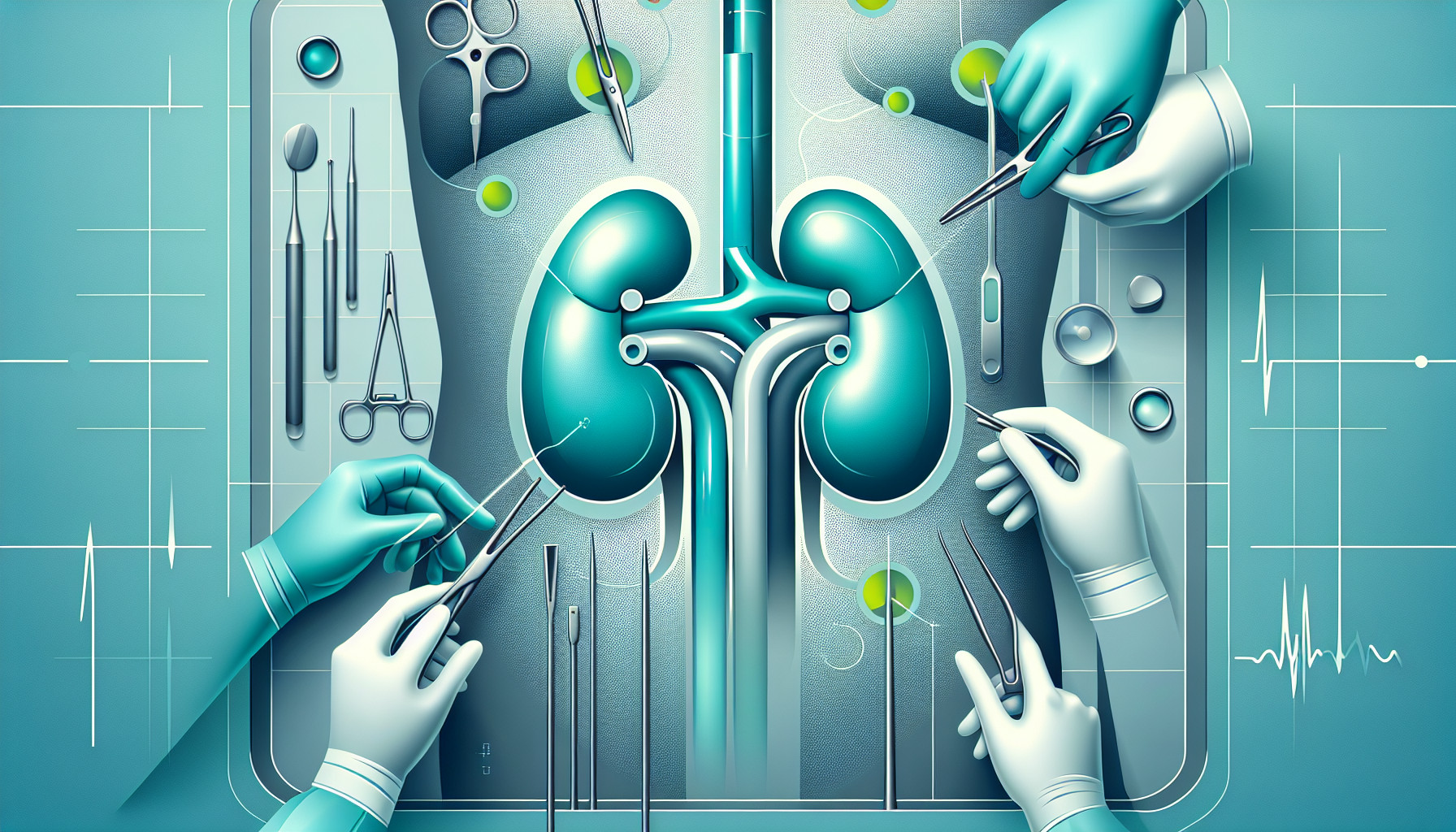Our Summary
The research paper is about the cardiovascular risk factors in patients with chronic kidney disease (CKD) who are waiting for a kidney transplant or have already received one. These patients are more likely to suffer from heart diseases compared to the general population. This is due to several reasons including traditional and nontraditional risk factors, issues related to kidney disease like uremia, and factors specific to the transplant process. Two key processes related to heart diseases - atherosclerosis (hardening of arteries) and arteriosclerosis (buildup of fats, cholesterol, etc. in and on the artery walls) - are often found in these patients. These processes can trigger vascular calcification or hardening of blood vessels, leading to heart issues. The paper reviews the current understanding of these processes, the risk factors involved and the mechanisms that cause inflammation leading to these issues. Regular monitoring and management of these risk factors and inflammation can help in reducing heart disease risk in these patients.
FAQs
- Why are patients with chronic kidney disease who are waiting for a kidney transplant or have already received one more likely to suffer from heart diseases?
- What are the two key processes related to heart diseases that are often found in patients with chronic kidney disease waiting for a transplant or have already received one?
- How can regular monitoring and management of risk factors and inflammation help in reducing heart disease risk in kidney transplant patients?
Doctor’s Tip
A helpful tip a doctor might tell a patient about kidney transplant is to closely follow the post-transplant care plan provided by the medical team. This may include taking medications as prescribed, attending follow-up appointments, maintaining a healthy lifestyle, and monitoring for any signs of rejection or complications. It is important to communicate any concerns or changes in health to the medical team promptly to ensure the best possible outcomes after the transplant.
Suitable For
Patients with chronic kidney disease (CKD) who are recommended for kidney transplant typically have end-stage renal disease (ESRD) and are on dialysis. These patients have a significantly higher risk of cardiovascular disease compared to the general population. Patients with CKD often have multiple traditional cardiovascular risk factors such as hypertension, diabetes, dyslipidemia, and smoking, which further increase their risk of heart disease.
In addition to traditional risk factors, patients with CKD also have nontraditional risk factors such as inflammation, oxidative stress, endothelial dysfunction, and mineral and bone disorders. These factors can contribute to the development of atherosclerosis and arteriosclerosis, which are common in patients with CKD.
Patients who are awaiting a kidney transplant or have already received one are at a particularly high risk of cardiovascular disease due to the stress of surgery, immunosuppressive medications, and potential complications such as graft rejection. These patients require close monitoring and management of their cardiovascular risk factors to reduce their risk of heart disease.
Overall, patients with CKD who are recommended for kidney transplant are those who have ESRD and are at a high risk of cardiovascular disease. These patients require comprehensive care to manage their cardiovascular risk factors and reduce their risk of heart disease both before and after transplantation.
Timeline
Before Kidney Transplant:
- Patients with chronic kidney disease (CKD) are at an increased risk for cardiovascular diseases due to traditional and nontraditional risk factors.
- Patients may experience symptoms such as high blood pressure, diabetes, and high cholesterol, which can contribute to heart issues.
- Patients may undergo dialysis treatment to help manage their kidney function while waiting for a transplant.
- Patients are evaluated for a kidney transplant, including compatibility testing and assessment of overall health.
After Kidney Transplant:
- Patients undergo the kidney transplant surgery, which involves removing the damaged kidney and replacing it with a healthy donor kidney.
- Patients may experience a period of recovery and adjustment after the transplant surgery, including monitoring for signs of rejection or complications.
- Patients may need to take immunosuppressant medications to prevent organ rejection, which can increase the risk of cardiovascular issues.
- Patients will continue to be monitored for cardiovascular risk factors, including regular check-ups, blood tests, and imaging studies.
- With proper management of risk factors and inflammation, patients can reduce their risk of heart diseases and improve their overall health outcomes post-transplant.
What to Ask Your Doctor
What are the traditional cardiovascular risk factors that I should be aware of as a kidney transplant patient?
How does chronic kidney disease increase my risk for heart diseases?
What are the nontraditional risk factors that I should be concerned about as a kidney transplant patient?
How does the transplant process itself affect my cardiovascular health?
What steps can I take to reduce my risk of heart diseases as a kidney transplant patient?
What role does inflammation play in increasing my risk for heart diseases?
How often should I have my cardiovascular health monitored as a kidney transplant patient?
Are there any specific medications or treatments that can help manage my cardiovascular risk factors as a kidney transplant patient?
How does vascular calcification impact my risk for heart diseases, and what can be done to prevent it?
Are there any lifestyle changes, such as diet and exercise, that can help improve my cardiovascular health as a kidney transplant patient?
Reference
Authors: Hernández D, Alonso-Titos J, Armas-Padrón AM, Lopez V, Cabello M, Sola E, Fuentes L, Gutierrez E, Vazquez T, Jimenez T, Ruiz-Esteban P, Gonzalez-Molina M. Journal: Kidney Blood Press Res. 2020;45(1):1-27. doi: 10.1159/000504546. Epub 2019 Dec 4. PMID: 31801144
